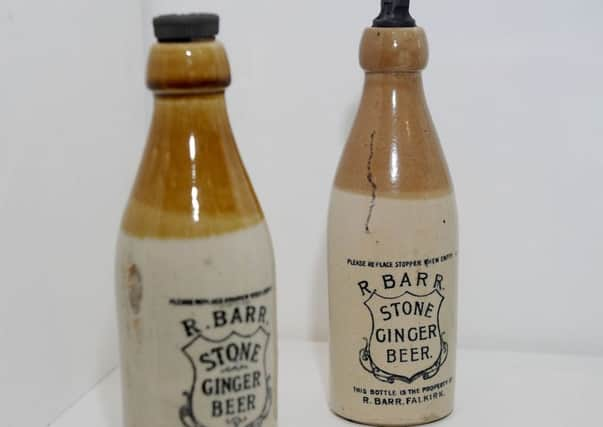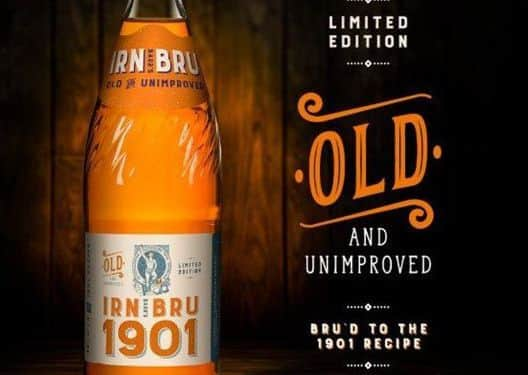‘Real’ Falkirk-style Irn-Bru is back - but not for long


But anyone who wants to know what the drink really tasted like when first produced in Falkirk back in Edwardian times will be able to satisfy their curiosity - and their thirst - with a limited edition “Irn-Bru 1901” to be issued in December.
It is made from an authentic recipe from a handwritten book “stored deep in the company archives for over 100 years”.
Advertisement
Hide AdAdvertisement
Hide AdThe firm says: “Irn-Bru 1901 is like nothing anyone has tasted before, and is sure to delight fans as they experience Irn-Bru as it first was”.


There is sugar involved in production - we’re not told how much - but no caffeine.
It does have “a frothy head” and a gingery fizz.
The firm says that given the age of the recipe there is nobody alive today (outwith the production team) who has tasted this early version of the famous sickly-sweet iridescent orange concoction.
In a previous article on the drink’s local origins, Falkirk historian Ian Scott says it isn’t possible to say for sure if the original “Iron Brew” comes specifically from Falkirk, although it was in production in Falkirk and Glasgow at the same time.
Advertisement
Hide AdAdvertisement
Hide AdHowever it does ultimately derive from the firm famously established in Falkirk in the 19th century - and may have been quaffed in heroic quantities by men coming off a heavy shift at, say, the Carron Ironworks.
Ian recalls that the growth of “aerated waters” was due in no small measure to an attempt to wean heavy industry workers away from beer (the Temperance Movement was in full swing).
Many other firms tried their hand at soft drinks, he says, creating products such as Shamrock Cup, champagne ginger, Yum Yum (“an oriental drink sold in Japan”), Ciderette and Phoscal.
Sadly, none has survived. Iron Brew, renamed Irn-Bru, was the all-conquering field leader of the sector, and Barr’s steadily grew by taking over many of the other companies.
Advertisement
Hide AdAdvertisement
Hide AdNow, in a move perhaps inspired by a desire to reinforce brand heritage in a complex mass market stuffed with energy drinks and other novelties, Barr is releasing its limited edition 1901 variant solely in trad-style 75cl glass bottles - and it will cost about £2.
Robin Barr, who unearthed the recipe, said: “The 1901 recipe has aged beautifully over the last 118 years.
“For a limited time, we’ll be producing a premium ‘old and unimproved’ IRN-BRU 1901 just as it was enjoyed by our first fans.
“This is IRN-BRU as you’ve never tasted it. It’s a chance to enjoy a unique and authentic piece of Scottish history - but don’t hang about, we don’t think it will be around for long.”